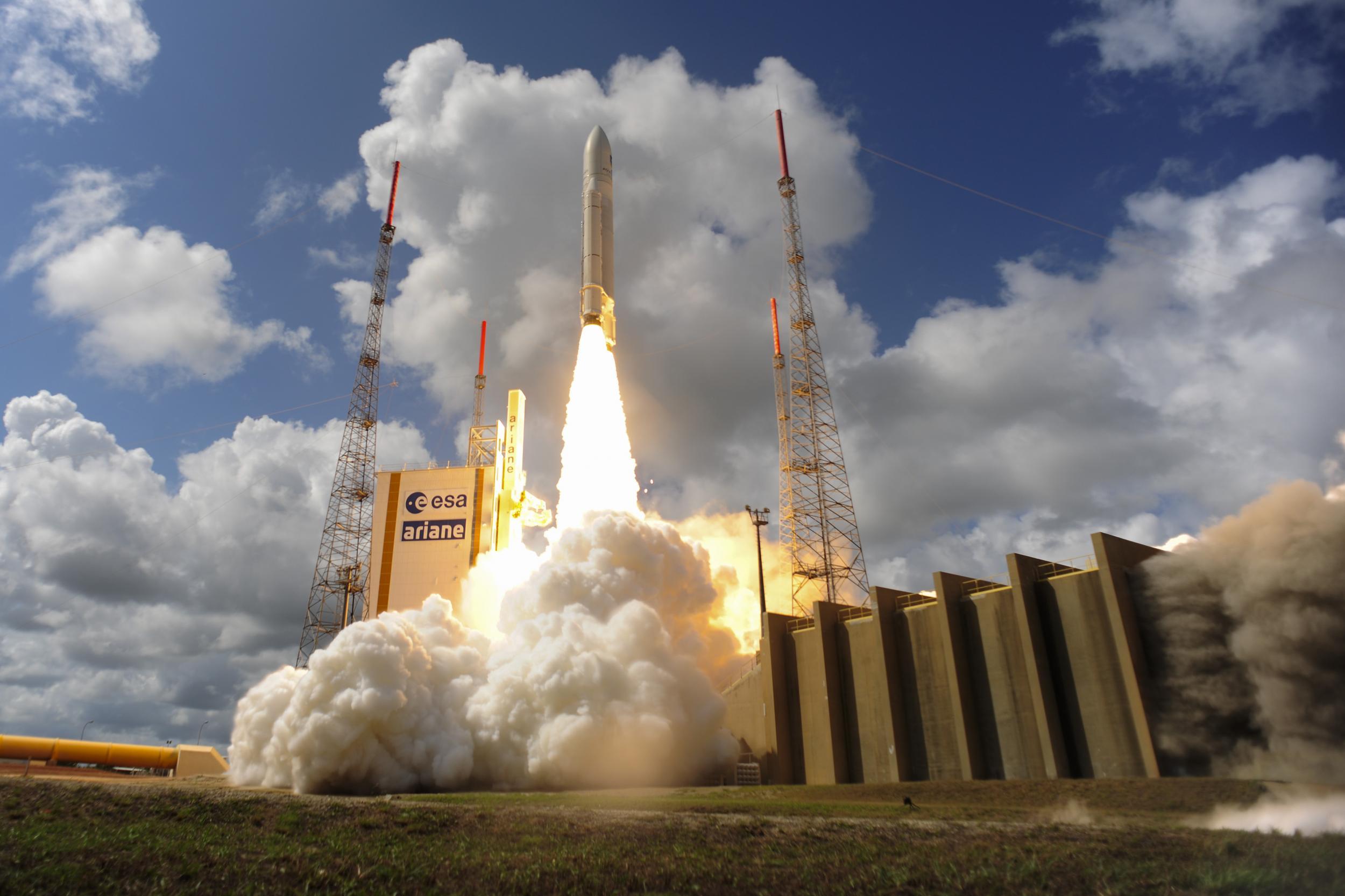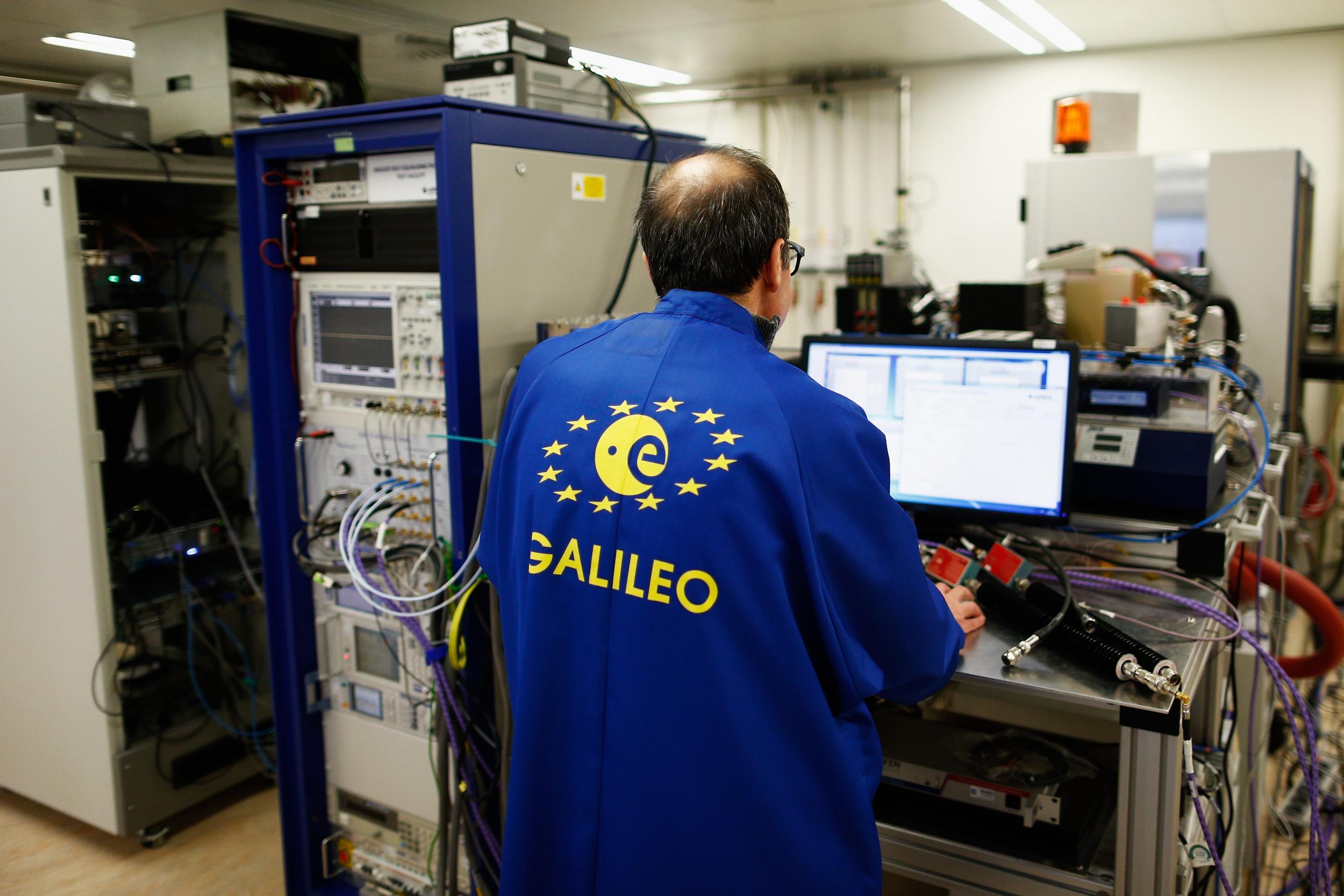Your support helps us to tell the story
From reproductive rights to climate change to Big Tech, The Independent is on the ground when the story is developing. Whether it's investigating the financials of Elon Musk's pro-Trump PAC or producing our latest documentary, 'The A Word', which shines a light on the American women fighting for reproductive rights, we know how important it is to parse out the facts from the messaging.
At such a critical moment in US history, we need reporters on the ground. Your donation allows us to keep sending journalists to speak to both sides of the story.
The Independent is trusted by Americans across the entire political spectrum. And unlike many other quality news outlets, we choose not to lock Americans out of our reporting and analysis with paywalls. We believe quality journalism should be available to everyone, paid for by those who can afford it.
Your support makes all the difference.A part of the infrastructure for the Galileo satellite system will be relocated from the Britain to Spain because of the UK’s departure from the EU, the European Commission has announced.
The back-up security monitoring centre for Galileo, Europe’s advanced version of GPS, was originally awarded to London in 2010 after a competitive process.
The centre, which was due to become fully operational later this year, controls access to the satellite system and provides around-the-clock monitoring of it when the main security centre, near Paris, is offline.
“Today the Committee of the member states’ representatives met and we can confirm that the committee voted in favour, by a large majority of our commission proposal to relocate the centre to Spain,” a spokesperson for the European Commission told reporters in Brussels.
“This is what we can say today. As is the case with all committee procedures the college [of commissioners] will now formally adopt this decision in its meeting next Wednesday.”
He confirmed that the system was being moved “as consequence of the UK withdrawal from the EU”.
The relocation is the latest blow to Britain’s space industry from Brexit. In November UK aerospace firms and the Royal Aeronautical Society said they were being excluded from contracts because of the decision to leave the EU, with contracts for Galileo particularly affected.

The relocated back-up security centre is expected to employ as many as 30 people when it becomes fully operational in Madrid – with additional benefits for prestige and local expertise.
Galileo’s space constellation currently consists of 18 satellites, with full services due to come online in 2020. The system, which is designed to be more accurate than GPS, was developed in part so that Europe would not have to rely on a system controlled by the US military for navigation.
The US also reserves the most accurate data from GPS for its armed forces, and there are concerns that it could be shut off for other users during wartime.
GPS also has a feature called “selective availability” that can be used to deliberately introduce errors into positioning, with the stated purpose of preventing enemy forces from using the system to guide weapons. The system is currently turned off.
In November the EU announced that the European Medicines Agency and the European Finance Authority would be moving from London to Amsterdam and Paris respectively because of Brexit, taking hundreds of high-paying jobs and sectoral benefits with them.

Join our commenting forum
Join thought-provoking conversations, follow other Independent readers and see their replies
Comments